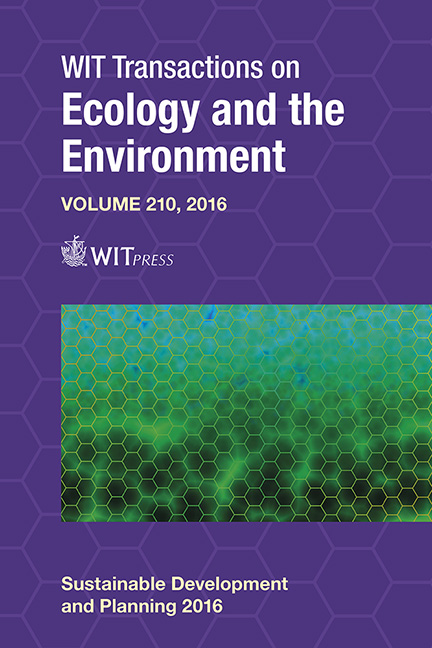Life Cycle Assessment In Housing Projects: An Applied Study For The Context Of Northeast Brazil
Price
Free (open access)
Transaction
Volume
210
Pages
12
Page Range
171 - 182
Published
2017
Size
670 kb
Paper DOI
10.2495/SDP160151
Copyright
WIT Press
Author(s)
R. M. R. Tabosa, G. J. A. Silva
Abstract
Today, sustainability is an important and crucial issue regarding several activities performed by man. The professionals in the field of architecture and urbanism are increasingly being spurred to minimize environmental impacts and building costs. In developing cities, such as those from Northeast Brazil, the environment impact tends to be larger; therefore, the use of sustainable architecture becomes much more relevant. In this scenario, numerous sustainability practices are researched and developed to be applied to architectural projects, such as the Life Cycle Assessment (LCA) technique, which might be used into architecture housing projects. Therefore, this research aims at establishing guidelines for sustainable building practices and low technology architecture in Northeast Brazil, mainly focusing on the state of Paraíba, based on parameters such as materials; energy, waste and environmental comfort. Because of this, four examples of internationally environmentally certified multi-family dwellings which carry LCA process in their construction have been chosen to be a case study, to associate them with the local reality outlined in problems of possible forms of implementation of feasible alternatives of sustainability in construction. It was found that there are viable practices for sustainable architecture in accordance with the local reality of the life cycle assessment process amongst the previously established parameters. The results provide evidence that it is achievable to apply the concepts of sustainability and efficiency in local architecture without using big technology, construction techniques or high costs.
Keywords
Life Cycle Assessment, sustainable architecture, Northeast Brazil





